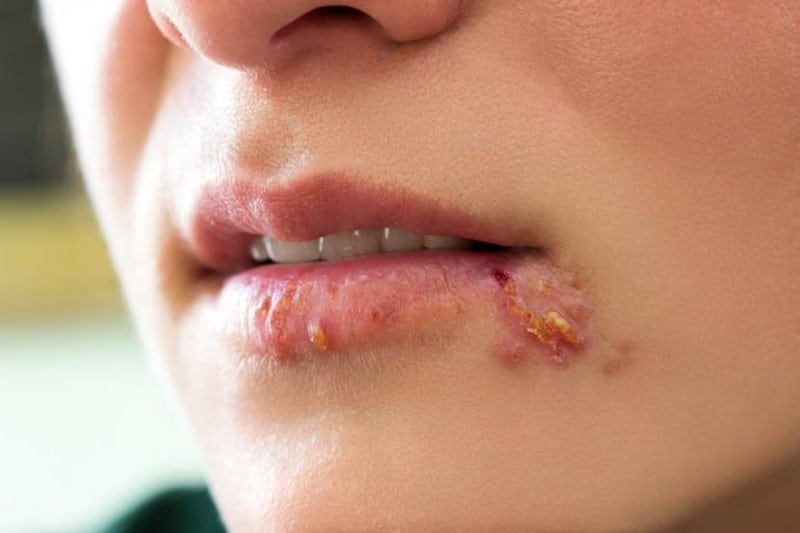HSV

The herpes simplex virus (HSV) is responsible for the skin disorder herpes, which damages several organs and systems in the body. Herpes can cause an infection of the mouth and lips called oral herpes or herpes labialis, which can lead to cold sores. The virus is transmitted by direct skin contact with an infected person or by sharing contaminated items such as cutlery, cosmetics, razors, and other personal items. Most patients who get oral herpes are infected due to nonsexual interaction with contaminated saliva during childhood or early adulthood.
The majority of HSV patients will be asymptomatic. However, recurrent sores and lesions can be visible. The most common sites of occurrence are the lips, tongue, palate, and gums. Small bumps or pimples may appear initially, but the sores may eventually rupture and fill with pus.
After a day or two, the fluid-filled blisters that first form the sores will break. Infected fluid will drain from the lesions and leak a clear or yellow liquid after bursting. The sores will develop yellow crusts or scabs after a few days before fully healing within a week to ten days. Lastly, some patients may experience swollen lymph nodes as a result.










